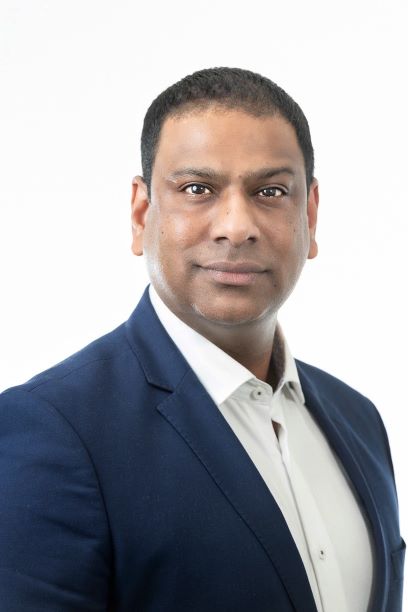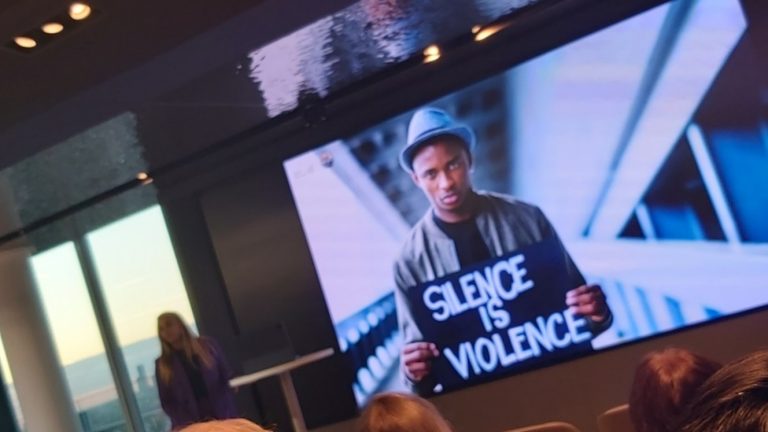Mental Health Awareness
InterInvest hosted two events in June to mark Mental Health Awareness Week.
Mindfulness
We partnered with Quiet & Co to demonstrate how you could decrease your stress levels and improve your wellbeing. The session was facilitated by Quiet & Co founder, Neil Midgley, who was a corporate lawyer and journalist before starting this journey to providing workplace mindfulness.
As mentioned by Neil, you can attend free daily drop-in meditations, live every weekday at 6pm – join using the link at www.keepcalmer.co.uk
Neil’s audio guided meditations can be found at www.soundcloud.com/quietandcompany
Neil can be contacted at neil@quietandcompany.com
Shining a light on LGBT+ mental health
We welcomed over 50 people from across the investment and banking industry, our member firms and supporters of LGBT networks to shine a light on LGBT+ mental health.
The virtual audience joined us for an informal chat with Dr David McLaughlan – the ‘Off Duty Doctor’ – to talk about a range of issues including:
- How LGBT+ people are disproportionally affected by mental health issues.
- The challenges LGBT+ people can face in the workplace.
- How to notice and better manage anxiety.
LGBT+ mental health inequalities
The LGBT+ community is disproportionately impacted by mental health challenges, with LGBT+ people four times more likely to suffer from depression or anxiety.
“These challenges are often amplified by social exclusion, marginalisation, bullying and harassment,” Dr David McLaughlan says. The award-winning specialist in mental health and wellbeing explained how people are often impacted by these challenges in different ways.
“Depression is often more common amongst individuals identifying as transgender, while bisexual people are 40% more likely to have either considered or attempted suicide,” he added.
This is most apparent in the workplace, where 81% of the LGBT+ community having experienced a mental health condition. McLaughlan believes this may be a result of management priorities: “64% of managers have had to put the interests of their organisation above staff wellbeing.”
This has clearly taken its toll, with many experiencing serious harassment in the workplace. 50%+ of LGBT+ women are not fully out at work and a third have experienced verbal or physical abuse due to their sexuality*.
Improving the situation for LGBT+ employees
So, what can be done to tackle these issues? McLaughlan opened the question to the audience and many agreed that employees should be empowered with the tools and training required to help call out homophobia or discrimination when they think appropriate. “Visibility shouldn’t be a tick box exercise,” a member of the audience suggested, but “should run through the whole organisation from senior management to front line customer services”.
It’s evident that for those in the LGBT+ community, not seeing a reflection of themselves in senior roles can often increase feelings of isolation. The power of visible touchpoints was brought to life by another member of the audience, who talked about visiting a retail bank branch and being greeted at the door by a member of staff wearing a rainbow pin. This example demonstrated that small adjustments can improve how businesses engage with clients and colleagues, whether that’s allowing a customer to talk openly about a joint application mortgage with their partner or discussing support options openly in team meetings.
Helping colleagues with mental health issues
McLaughlan recognised that these changes need to be driven by everyone within a business, which will often mean changing the way we all respond to those with mental health issues at work.
“It’s really important to listen,” McLaughlan says. “Being there for the person can really make a difference.” Mental health counsellors or first aiders that specialize in LGBT+ concerns should become more commonplace and resources offered by employees should cover LGBT+ issues, to help reduce the fear of discrimination for those seeking help.
This often starts with the language we use. “It’s important for us all to be aware of our language and not make light of someone’s mental health issue, just as they wouldn’t if it was a physical health problem,” says McLaughlan. “Saying someone has ‘admitted’ they have an issue, for example, draws comparisons to confessing to a crime,” he adds.
The importance of language extends to use of gender-neutral pronouns and avoidance of comments like ‘Debbie Downer,’ which can often exacerbate underlying mental health issues.
Tackling anxiety
McLaughlan rounded up the talk by offering the audience some practical tips about how to manage anxiety.
“When you’re overthinking negatively about the past, it can lead to depression but when you’re worried about the future it’s anxiety,” he explained. “This comes with physical feelings of panic, confusions, brain fog, sweaty palms, increased heart rate and shortness of breath.” The body goes into fight or flight mode and these physiological responses are often reactions to real or perceived threats
McLaughlan suggests there may be heightened anxiety for introverted people coming out of lockdown but if this is recognised in advance it can be addressed more effectively.
One approach discussed was a mindfulness exercise that involved paying attention to your breathing and your surroundings by following a few simple steps:
- Recognise five items and details around you
- Listen to four sounds (low or loud)
- Feel three things close to you and think about their texture
- Think about the taste of two things close by
- Think about one thing that’s made you feel happy today.
Dr David’s fee for the event was being donated to akt, a charity which supports LGBT+ young people aged 16-25 in the UK who are facing or experiencing homelessness or living in a hostile environment. If you would like to find our more or to Donate please visit www.akt.org.uk
*Source: The Mental Health at Work Report. BITC & Mercer. The DIVA Survey: LGBTQI Women’s Insight 2020.
Further information about Dr David’s work can be obtained via www.offdutydoctor.com or info@offdutydoctor.com

Dr David Mclaughlan BMSc MBChB MRCPsych
Dr David McLaughlan is an award-winning medical doctor specialising in mental health and wellbeing. Increasingly, Dr David has become a voice promoting mental wellbeing through the celebration of inclusion, diversity and equality. He supports a number of LGBTQ charities including Out For Sport and the All Sorts Youth Project.


